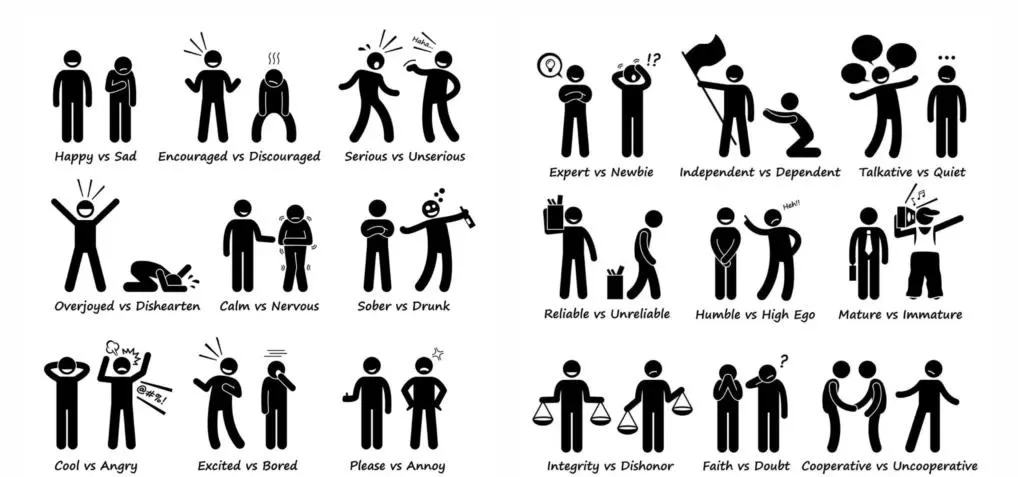A university interview can be the key to securing a spot in your dream program, making it essential to avoid common mistakes that could jeopardize your success. With competition growing, demonstrating your preparedness and unique attributes can set you apart from other applicants. By understanding the common mistakes in university interviews, you can confidently navigate the process, improve your first impression, and increase your chances of acceptance.
University interviews offer admissions committees a chance to meet candidates and assess not only academic credentials but also character and fit for their program. So how do you make sure you shine? Let’s look at the most common mistakes to avoid, ensuring your preparation is thorough and impactful.
Not Researching the University and Program

One of the most common mistakes in university interviews is failing to conduct in-depth research about the university and the specific program you’re applying for. Interviewers look for genuine interest and understanding of the institution, and being uninformed can make you seem disinterested or unprepared. Researching shows that you respect the university’s unique qualities and values.
Why This Matters
- Universities seek students who align with their culture, mission, and goals.
- Knowledge about the school allows you to tailor your responses, making a more compelling case for why you belong there.
Research Tips
- Dive into the university’s website, particularly the “About Us” and program pages, to understand their values and strengths.
- Check out any student success stories, research achievements, or recent news that reflects the program’s focus.
- Identify professors, courses, or facilities that connect with your academic or career goals, which you can reference during the interview.
Explore A guide On Researching Universities
Failing to Prepare for Common Questions

Interviewers tend to ask some standard questions that help them assess your motivation, goals, and suitability for the program. Yet, one of the most common mistakes in university interviews is arriving unprepared to answer these questions with depth and authenticity. While it’s important to prepare your answers, it’s equally crucial to avoid sounding scripted.
Typical Questions to Expect
- “Why did you choose our university?”
- “Can you share a time when you faced a challenge and how you handled it?”
- “What are your long-term career goals?”
How to Prepare Effectively
- Use the STAR (Situation, Task, Action, Result) method for questions requiring examples of past experiences.
- Practice with a friend or mentor to develop a natural conversational style.
- Reflect on your personal motivations and what specifically excites you about the program to create sincere responses.
Explore Common University Interview Questions
Lacking Confidence or Overconfidence

Striking the right balance between confidence and humility is key, but it’s often challenging. One of the common mistakes in university interviews is appearing either overly timid or too self-assured. Both can negatively impact your interview. Confident candidates are more likely to be memorable, yet modesty shows respect for the learning journey and the opportunity presented.
Tips to Project Balanced Confidence
- Focus on your accomplishments without overstating them. Acknowledge mentors or teamwork contributions to highlight humility.
- Maintain good posture and eye contact as signs of confidence without appearing too intense.
- Prepare mentally by visualizing success in the interview, helping calm any nerves.
Overlooking Body Language and Presentation

Body language often speaks louder than words. Non-verbal cues like slouching, avoiding eye contact, or fidgeting can unintentionally convey disinterest or nervousness. Proper body language, however, complements your spoken words, creating a strong, confident impression.
Non-Verbal Tips
- Sit upright but relaxed to convey openness and attentiveness.
- Maintain steady eye contact, especially when listening to or responding to the interviewer.
- Smile genuinely and use nodding to show engagement, as it reflects an active interest in the conversation.
Giving Vague or Generalized Answers
A common pitfall in university interviews is delivering vague or generalized responses that fail to capture who you are and what you can contribute. When responding, make sure your answers are specific and tied to relevant experiences or goals, highlighting why you are a good fit for the program.
Strategies for Providing Specific Answers
- Identify and practice sharing personal examples that showcase skills, resilience, or curiosity.
- Replace generic statements like “I’m passionate about this field” with specific experiences that sparked your interest.
- Focus on “why” you’re drawn to the program’s unique attributes.
Explore Structuring Interview Answers
Not Asking Questions When Given the Opportunity

An interview is also an opportunity for you to learn more about the university. Failing to ask questions is another common mistake in university interviews that can signal disinterest or lack of curiosity. Thoughtful questions demonstrate your engagement and help you gather useful insights about the school.
Examples of Meaningful Questions
- “What distinguishes this program’s approach from similar ones?”
- “How does the university support students in finding internships or research roles?”
- “Are there clubs or extracurricular activities specific to my field of study?”
Forgetting to Follow Up
Sending a thank-you email post-interview is a simple but effective way to leave a lasting positive impression. It’s a courteous gesture that shows professionalism, respect, and continued interest, all of which are valued by admissions teams.
Thank-You Email Tips
- Be brief, expressing gratitude for the opportunity and mentioning any memorable discussion points.
- Reiterate your enthusiasm for the program, specifically highlighting any new insights gained from the interview.
- Send the email within a day to show your promptness and sincerity.
Explore Thank-You Email Template
Conclusion

University interviews are a critical opportunity to showcase your potential as a student, and avoiding these common mistakes in university interviews can help you make a strong, memorable impression. By taking the time to thoroughly research the university, preparing thoughtfully for typical questions, and demonstrating genuine interest, you’ll present yourself as a compelling candidate who is serious about contributing to their academic community. Keep these tips in mind as you prepare, and approach each part of the process with intentionality and confidence. Good luck on your interview journey!



